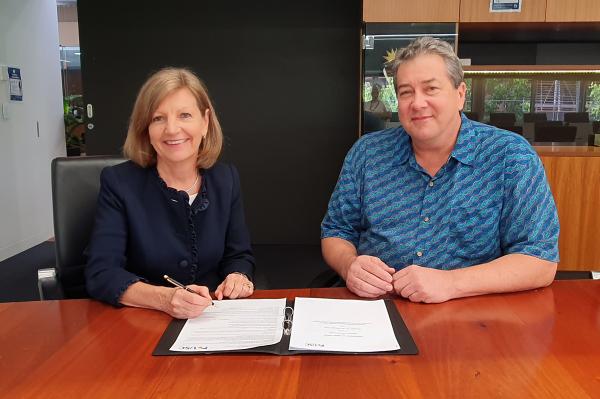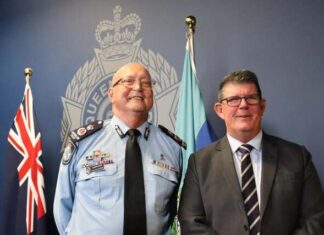A Memorandum of Understanding between USC and the Noosa Biosphere Reserve Foundation (NBRF) looks set to strengthen the biosphere reserve’s ongoing role as a ‘living lab’.
The agreement was signed recently by USC Vice-Chancellor and President Professor Helen Bartlett and NBRF Chair Rex Halverson and has a keen focus on research and learning that relates to conservation and sustainability.
It formalises an existing relationship between the two organisations and paves the way for important research activities, education events for the public (such as symposia and conferences) and more educational opportunities for USC students.
Professor Bartlett said the university was looking forward to working closely with the NBRF on a range of projects that will have a regional, national and global impact.
“Together we will support and coordinate research and education that enhances biodiversity conservation and promotes sustainable living in Noosa,” Professor Bartlett said.
“This will be achieved through collaborative research partnerships, joint education events, and delivering education initiatives such as undergraduate work integrated learning opportunities or postgraduate scholarships for Master and PhD students.”
The Noosa Biosphere Reserve encompasses the local government area of the Noosa Shire plus three kilometres offshore.
Mr Halverson explained Noosa gained UNESCO Biosphere Reserve status in 2007 in recognition of the community’s commitment to achieving a balance between environmental conservation and sustainable human development.
“This internationally recognised status presents a unique opportunity to establish the region as a ‘living lab,’ a place to encourage scientific experimentation, research and the development of sustainable solutions to contemporary challenges and issues,” he said.
“The MoU with USC reflects our shared aim of meeting the global goals and spirit of biosphere reserves, where community work together towards a sustainable future. Through this partnership we have made significant advances in koala research and the MoU will continue to deliver long-term benefits for the Noosa region.”
The MoU’s management committee will aim to develop and implement undergraduate workplace integrated learning initiatives for disciplines that include environmental management, urban design and town planning, law, business and communication.
It will also investigate mechanisms to deliver a Noosa Biosphere Reserve ‘report card’ that regularly reports on the state of the reserve in line with UNESCO Man and the Biosphere program objectives.









